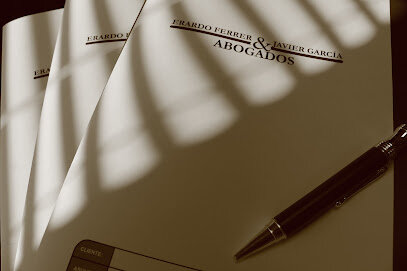Best Real Estate Due Diligence Lawyers in Arrecife
Share your needs with us, get contacted by law firms.
Free. Takes 2 min.
Free Guide to Hiring a Real Estate Lawyer
List of the best lawyers in Arrecife, Spain
About Real Estate Due Diligence Law in Arrecife, Spain
Real estate due diligence in Arrecife, the capital of Lanzarote in Spain's Canary Islands, refers to the thorough legal and technical checks required before purchasing, selling, or investing in property. This process helps to verify ownership, clarify existing encumbrances, ensure the legality of the property, and uncover potential legal or financial risks. In Spain, and specifically in Arrecife, real estate due diligence is governed by a mix of national and regional laws that aim to protect both buyers and sellers. For buyers, due diligence is an essential part of making informed decisions and safeguarding investments.
Why You May Need a Lawyer
Engaging a lawyer for real estate due diligence in Arrecife is advisable in several situations. Common scenarios include purchasing residential or commercial property, inheriting property, receiving property as a gift, resolving boundary disputes, or facing claims of illegal construction. A lawyer helps review documents, spot potential red flags, and verify property status with relevant local authorities. For foreign buyers unfamiliar with Spanish legal procedures and language, legal help ensures compliance with both national and municipal regulations, thus avoiding costly mistakes or fraudulent transactions.
Local Laws Overview
Arrecife operates within the Spanish legal framework for real estate transactions, which is further informed by Canary Islands' autonomous community regulations and local municipal rules. Key points include:
- The Land Registry (Registro de la Propiedad) holds the definitive records of property ownership and encumbrances.
- Urban planning regulations (Plan General de Ordenación Urbana) affect the potential uses of property.
- Building permits and certificates of occupancy must be valid and up to date.
- Debts such as unpaid property taxes (IBI), community fees, or utilities can be inherited by buyers if not settled at purchase.
- Non-Spanish buyers must obtain a foreigner’s identification number (NIE) to complete property transactions.
- Properties in coastal areas may be subject to additional public domain and environmental regulations.
These aspects are crucial in Arrecife's property market, requiring careful review to ensure any transaction is legally sound.
Frequently Asked Questions
What is real estate due diligence in Arrecife?
It is the process by which a buyer or their representative thoroughly examines a property’s legal and physical status before completing a transaction. The goal is to verify ownership, legality, potential urban planning issues, debts, and physical conditions.
Is a local lawyer necessary for property transactions in Arrecife?
While not legally mandatory, engaging a local lawyer is strongly recommended, especially for non-residents or those unfamiliar with Spanish law, to avoid mistakes or falling victim to fraud.
What documents are typically reviewed during due diligence?
Key documents include the property deed, nota simple (land registry extract), latest IBI payment receipts, community fee certificates, building permits, and certificates of occupancy.
What risks exist if I skip legal due diligence?
Ignoring due diligence may result in buying property with outstanding debts, unresolved planning violations, fraudulent ownership claims, or even properties that cannot be legally occupied.
Are there restrictions for foreign buyers in Arrecife?
Spain welcomes foreign property investment, but purchasers must obtain an NIE number and may need to comply with additional reporting requirements.
Who pays the due diligence costs in Arrecife?
Typically, buyers cover the legal due diligence and notary costs, although this can be negotiated.
How long does the due diligence process take?
Depending on the complexity of the property and the speed of document collection, due diligence can take from one to several weeks.
Can I check all property documents myself?
Some documents are available to the public, but interpreting their legal implications often requires a professional’s help to avoid misunderstandings.
What if there is a building violation on the property?
Such violations can complicate or prevent a sale, and rectifying them may require legal or administrative actions. A lawyer can assess the situation and recommend solutions.
What fees and taxes apply when buying property in Arrecife?
Buyers pay property transfer tax (Impuesto sobre Transmisiones Patrimoniales), notary fees, registry fees, legal fees, and sometimes VAT if buying new property. A lawyer will clarify all applicable charges.
Additional Resources
Those needing further information or official guidance on real estate due diligence in Arrecife can consult:
- Registro de la Propiedad (Land Registry) offices in Arrecife
- Arrecife Town Hall (Ayuntamiento de Arrecife) for urban planning and building permits
- Notary offices for authenticating legal documents
- Official website of the Colegio de Abogados de Lanzarote for lawyer directories
- Local real estate professionals with expertise in due diligence
Next Steps
If you are planning to buy, sell, or inherit property in Arrecife, Spain, begin by collecting basic information about the property such as its deed, registry extract, and recent bills. Next, contact a qualified local lawyer experienced in real estate due diligence. Clearly communicate your objectives and provide all available documents. The lawyer will guide you through document checks, compliance with local regulations, and any necessary negotiations or rectifications before finalizing the transaction. Taking these steps ensures your investment or transfer is legally secure and free from unwelcome surprises.
Lawzana helps you find the best lawyers and law firms in Arrecife through a curated and pre-screened list of qualified legal professionals. Our platform offers rankings and detailed profiles of attorneys and law firms, allowing you to compare based on practice areas, including Real Estate Due Diligence, experience, and client feedback.
Each profile includes a description of the firm's areas of practice, client reviews, team members and partners, year of establishment, spoken languages, office locations, contact information, social media presence, and any published articles or resources. Most firms on our platform speak English and are experienced in both local and international legal matters.
Get a quote from top-rated law firms in Arrecife, Spain — quickly, securely, and without unnecessary hassle.
Disclaimer:
The information provided on this page is for general informational purposes only and does not constitute legal advice. While we strive to ensure the accuracy and relevance of the content, legal information may change over time, and interpretations of the law can vary. You should always consult with a qualified legal professional for advice specific to your situation.
We disclaim all liability for actions taken or not taken based on the content of this page. If you believe any information is incorrect or outdated, please contact us, and we will review and update it where appropriate.










